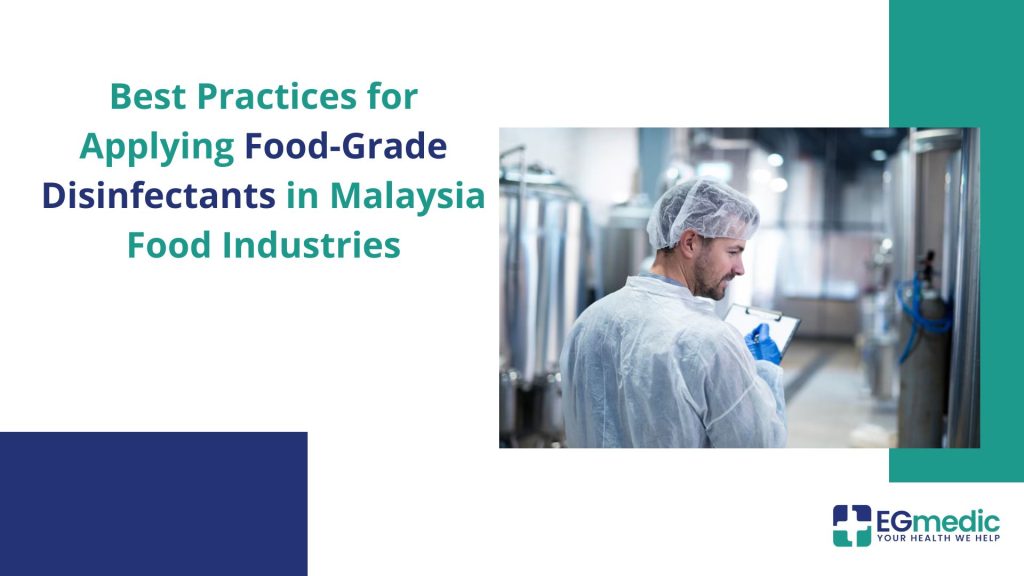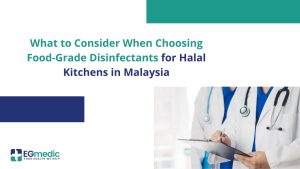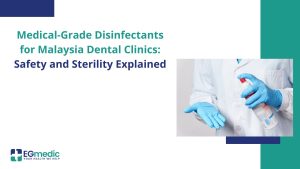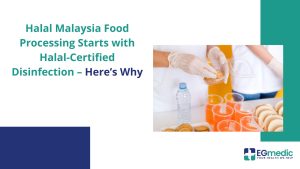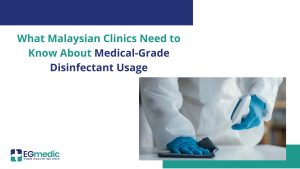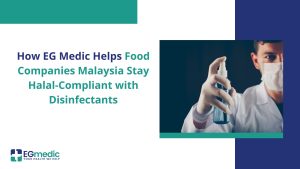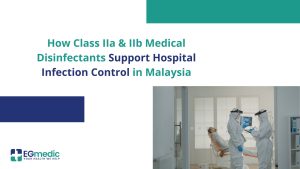Understanding Food-Grade Disinfectants
Food-grade disinfectants are specially formulated solutions that eliminate harmful microorganisms without leaving toxic residues on surfaces that come into contact with food. Unlike industrial cleaners, these are safe for food-contact surfaces like cutting boards, preparation tables, and conveyor belts.
In Malaysia, these disinfectants are crucial in industries ranging from F&B manufacturing and catering to food retail and packaging. They must:
- Be non-toxic and residue-free
- Have proven antimicrobial efficacy
- Be certified safe under Malaysia’s Food Hygiene Regulations 2009
EG Medic offers a range of food-safe disinfectants that are Halal-certified, biodegradable, and effective against bacteria, fungi, and viruses — making them ideal for both small kitchens and industrial food operations.
Key Application Guidelines in Malaysian Food Industries
To maximize the effectiveness of food-grade disinfectants, food businesses in Malaysia should follow these best practices:
- Pre-clean surfaces: Remove all food residues and grease with a food-safe detergent before applying disinfectant.
- Dilute correctly: Follow the manufacturer’s instructions for dilution to avoid ineffective disinfection or chemical residues.
- Allow sufficient contact time: Let the disinfectant sit on the surface for the recommended time (usually 5–10 minutes) before rinsing or drying.
- Use clean equipment: Always use sanitized spray bottles, cloths, or mops to avoid cross-contamination.
- Train staff: Ensure that all personnel understand proper disinfection procedures, including personal hygiene and chemical handling.
A report by the Malaysian Ministry of Health noted that consistent cleaning and sanitizing routines are one of the top five controls that reduce foodborne illness outbreaks.
EG Medic provides clear usage instructions and staff training materials to ensure consistent and safe application across your operations.
Conclusion
Using food-grade disinfectants in Malaysia’s food industries isn’t just a hygiene requirement — it’s a vital step in protecting public health, complying with food safety laws, and maintaining Halal integrity. By understanding disinfectant properties, applying them correctly, and adhering to Malaysian standards, food businesses can operate safely and confidently.

